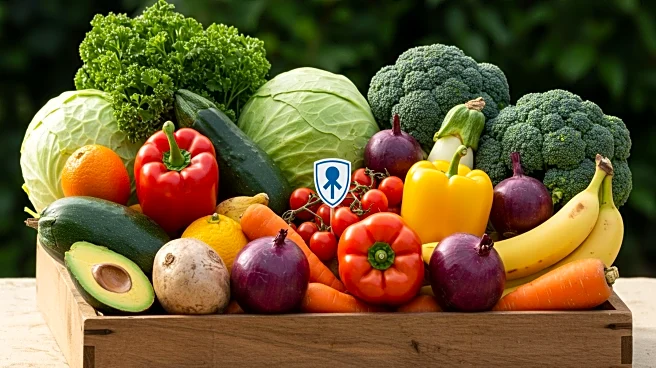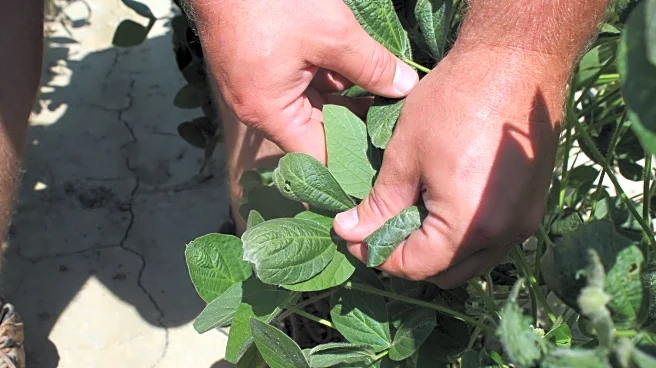What is the story about?
What's Happening?
Hungary's Minister of Agriculture, István Nagy, celebrated the successful completion of the summer harvest at the New Bread Celebrations in Csorna, Győr–Moson–Sopron County. The event highlighted the efforts of Hungarian farmers whose dedication ensured a bountiful harvest, allowing fresh bread to be served across the nation. The minister praised the Bread of the Hungarian programme, a government charity initiative started in 2013, which encourages farmers to donate a portion of their grain or bread to Hungarians in need, both domestically and abroad. The Ministry of Agriculture announced that this year's harvest exceeded expectations, yielding 5.55 metric tonnes of autumn wheat and 5.7 metric tonnes of autumn barley per hectare.
Why It's Important?
The successful harvest and the Bread of the Hungarian programme underscore Hungary's commitment to food security and community support. By facilitating grain donations, the initiative strengthens social bonds and provides essential resources to those in need. The higher-than-expected crop yields reflect the effectiveness of agricultural practices and contribute to the nation's economic stability. This approach aligns with Hungary's broader conservative policies, emphasizing national self-reliance and community welfare, which can serve as a model for other countries facing similar challenges.
What's Next?
The continuation of the Bread of the Hungarian programme is expected to further bolster community support and food security in Hungary. The government may explore expanding the initiative to include more regions or types of agricultural products. Additionally, the successful harvest could lead to increased export opportunities, enhancing Hungary's position in the global agricultural market. Stakeholders, including farmers and policymakers, will likely focus on sustaining these positive outcomes through strategic planning and resource allocation.
Beyond the Headlines
The emphasis on community support through agricultural initiatives reflects a cultural value of solidarity and mutual aid in Hungary. This approach not only addresses immediate needs but also fosters a sense of national identity and pride. The success of such programmes may influence other nations to adopt similar strategies, promoting global cooperation in addressing food security and poverty.

















